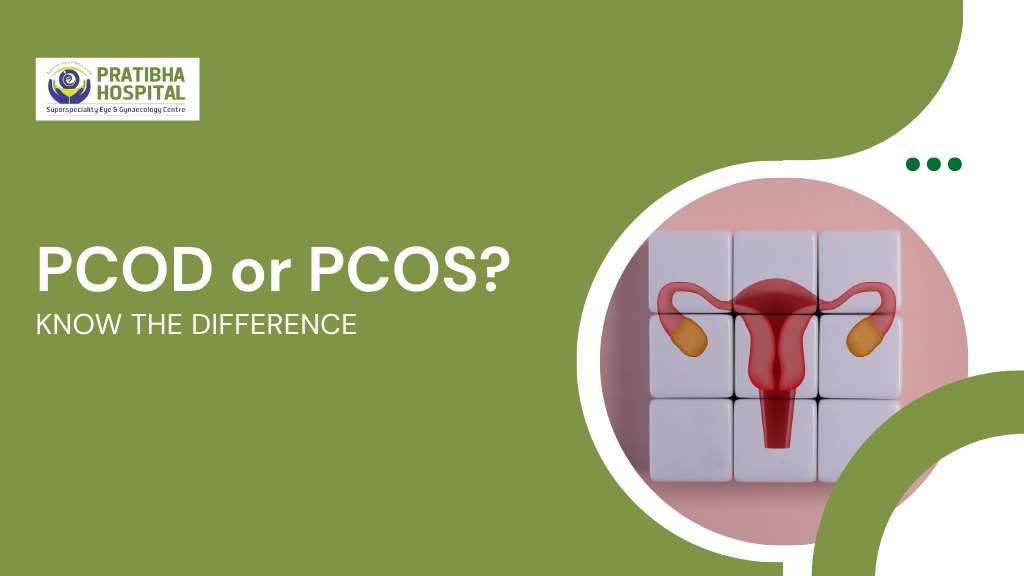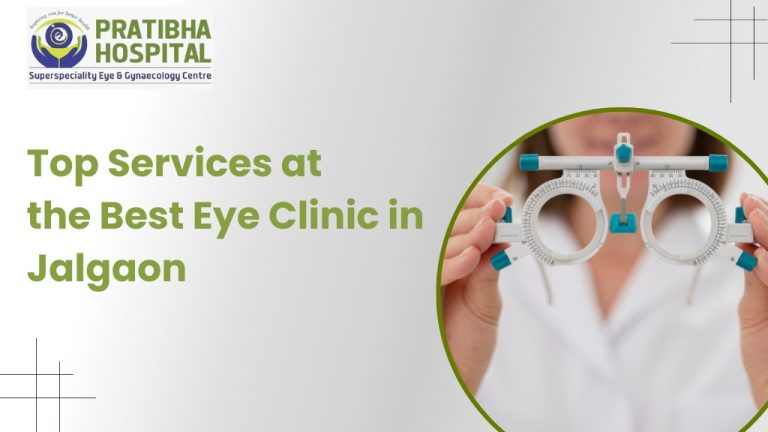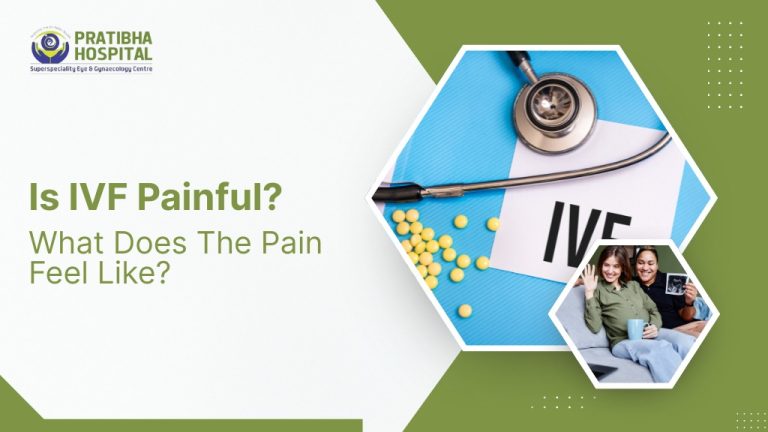PCOD vs PCOS: No More Confusion
Many women come across the medical issues PCOD and PCOS and think to themselves, No, they are not the same. But don’t worry, you are not the only one who is getting confused.
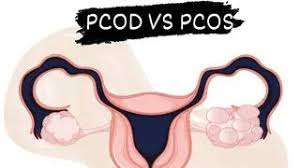
These are the health conditions of women due to some hormonal imbalance and unhealthy ovaries, and they do share some symptoms. So, the next question arises: What is the difference between PCOS and PCOD?
In this blog, we’ll explain what PCOD and PCOS are, how they are different, what causes them, and how you can manage them. No medical terms. Just a clear and simple explanation.
PCOD vs PCOS—Quick Look
| Point | PCOD | PCOS |
| Full form | Polycystic Ovarian Disease | Polycystic Ovary Syndrome |
| Type | A common condition of the ovaries | A more serious hormonal problem |
| Fertility | Can make pregnancy difficult | Can make pregnancy more difficult |
| Hormones | Slight imbalance | Bigger hormone problem |
| Treatment | Mostly needs lifestyle changes | Needs both lifestyle and medical help |
| Common? | More common | Less common |
What Is PCOD?
PCOD means your ovaries are not working in the correct way. Every month, the ovaries release eggs. But in PCOD, the ovaries make many small, immature eggs that don’t fully grow.
These eggs then convert into tiny cysts, which makes the ovaries become slightly bigger in size compared to normal, and affects your hormone levels.
Common signs of PCOD:
- Irregular periods (late or missed)
- Weight gain
- Acne (pimples)
- Hair thinning
- Bloating or feeling heavy
What is the main cause of PCOD?
PCOD is often caused by an unhealthy lifestyle, an unhealthy diet, being inactive towards exercise, stress, or not getting enough sleep.
Can PCOD be cured?
Yes. PCOD is a health issue that any woman can get and can usually be controlled or even reversed with healthy habits like
- Eating Food that is health-friendly
- Exercising daily
- Positive mindset
- Quality sleep
What Is PCOS?
PCOS is a major hormonal problem. It impacts your ovaries, hormones, and your whole body. In PCOS, the body produces more male hormones (called androgens). This stops the ovaries from releasing eggs properly.
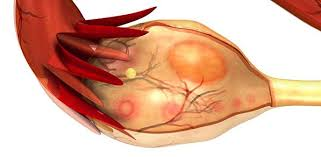
Common signs of PCOS:
- Irregular or no periods
- Excess facial or body hair
- Weight gain, especially around the stomach
- Dark patches on skin (especially neck or underarms)
- Acne that won’t go away
- Trouble getting pregnant
What is the main cause of PCOS?
Doctors believe PCOS is caused by a mix of things like
- Hormonal issue
- When your body is not handling the sugar the right way
- Genetics (runs in families)
Can PCOS be treated?
PCOS cannot be “cured”, but it can be handled. With the approach towards lifestyle adjustments and medical intervention, you can control symptoms and live a normal life.
What Is The Difference Between PCOS And PCOD?
Let’s put it in an easy explanation.
- PCOD is more common; PCOS is less common but more serious.
- PCOD is often linked to lifestyle, while PCOS is more of a medical condition.
- PCOD affects the ovaries; PCOS just affects one part of the body. It affects the entire body, including the hormonal imbalance, unhealthy skin, and fertility health; also, it becomes a major factor in weight gain.
- PCOD is easier to manage with lifestyle changes; PCOS often needs medicines and longer treatment.
- PCOS can result in the risk of other health challenges such as diabetes, heart disease, and infertility.
What Lifestyle Causes PCOD And PCOS?
While they are different, PCOD and PCOS can have similar causes:
- Eating too much junk food
- Gaining weight quickly
- Not being physically active
- Family history of PCOS
- Stress and poor sleep
How Do Gynecologists Detect If You Have PCOD And PCOS?
Your doctor will look at
- Your symptoms— Are your periods regular? Are you gaining weight is gaining or having skin-related problems?
- Ultrasound—To confirm the existence of the cysts in the ovaries.
- Blood tests— To check hormone levels like testosterone, insulin, and others.
How To Treat PCOS And PCOD?
1. Healthy lifestyle
This is the first and easiest healthy start for both PCOD and PCOS.
- Eat more fruits, vegetables, whole grains, and proteins.
- Only yes to fresh and nutritious food products on the plate.
- A big no to artificial sugar, deep-fried, and packaged snacks.
- At least 30 minutes, get engaged in some physical activities such as walking, yoga, dancing, or anything you enjoy.
- Get quality sleep, 7-8 hours a day.
- Manage stress by doing some breathing exercises, meditation, or spending time doing the work that makes you happy.
2. Medicines (if needed)
For PCOS (and sometimes PCOD), doctors may also suggest:
- Birth control pills to make your periods regular
- Medicines like metformin for insulin problems
- Tablets to help with acne or excess hair
- Ovulation medicines if you’re trying to get pregnant
Is PCOS More Dangerous Than PCOD?
Yes, PCOS can be more serious in the long run. It may lead to:
- Type 2 diabetes
- High blood pressure
- Fertility issues
- Mood problems like anxiety or depression
- Risk of uterine problems if untreated
That’s why early diagnosis and treatment are very important.
Can You Get Pregnant If You Have PCOD Or PCOS?
Yes, of course, if you successfully manage these disbalancing health issues, otherwise you may conceive, but carrying it to 9 months becomes hard; many women experience miscarriage in between.
Also read: Fertility Treatment Options to Overcome Fertility Issues
That is why it is first important to manage these problems, and once it gets in control, a healthy pregnancy is 100% possible.
With the right self-care and medical intervention, a healthy life and pregnancy can be achieved.
Conclusion
If you’ve ever wondered, “Is PCOD and PCOS the same?”—now you know the answer. They are not similar, but both can be controlled with the right steps.
The most essential thing is to listen to what your body is telling you.
The signs, such as irregular periods, acne, weight gain, or hair problems, should not be overlooked by doing just some home remedies or considering it to be natural. if it stays persistent for a long time, consult an expert gynecologist, it may be possible that it’s the beginning of PCOD or PCOS.
Get up and choose health over anything.

